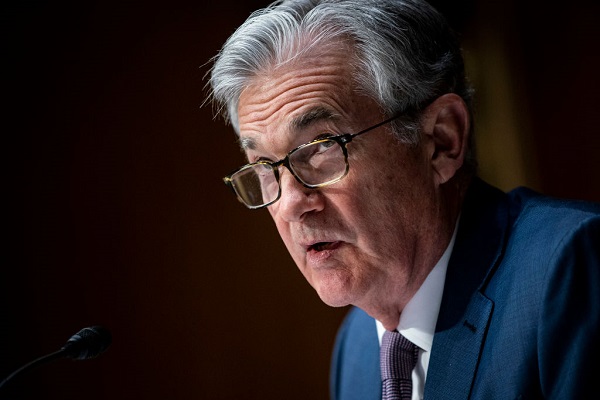Why the Federal Reserve won’t cut stimulus despite inflation spike
Our economics expert explains the approach of US policymakers and the implications for financial markets.
29th July 2021 12:16
by Alex Sebastian from interactive investor
Our economics expert explains the approach of US policymakers and the implications for global financial markets.

The US Federal Reserve has indicated it will not start cutting back its vast monetary stimulus programmes imminently, despite inflation running at a hefty 5.4%.
Jerome Powell, Chair of America’s central bank, struck a dovish tone in his address to the media last night.
Powell did however hint that while rate rises are a long way off still, some ‘tapering’ of the Fed’s bond buying programme is nearing.
In reining-in monetary stimulus measures such as those implemented in response to the pandemic, the first step is to cut back on the quantitative easing (QE) measures.
- Will ‘transitory’ inflation start to be worryingly persistent soon?
- Are you saving enough for retirement? Our pension calculator can help you find out
- A guide on how investors can protect against inflation
That by itself may not have a major impact, but it is seen as a forerunner to rate rises and can create downward pressure on the stock market.
There is recent precedent for this in the shape of 2013’s ‘Taper Tantrum,’ where the cutting back of stimulus measures brought in to combat the global financial crisis caused US treasury yields to spike.
When yields jump and the price of the underlying bonds fall accordingly, it can cause trouble in the markets and for the economy.
Higher yields mean higher borrowing costs for companies and the government, while the attraction of more yield can pull money out of the stock market and cause share prices to fall.
Against this background, we can be sure the Fed will tread very carefully as it attempts to slowly unwind its QE programme without spooking the markets.
The big risk with this approach is that inflation gets so high it becomes a major problem, and then the Fed’s hand is forced into making dramatic interventions.

The US economy leads the way for the world economy, so inflationary pressures eventually bleed out into the UK and elsewhere. Likewise, any miss-steps on unwinding by the Fed would be felt in markets around the world.
“There was little new news arising from the Fed statement, with Chair Powell reiterating the central bank’s accommodative stance for the moment,” noted Richard Hunter, head of markets at interactive investor.
“The question of scaling back stimulus is clearly being discussed, but equally without committing to a timescale.”
“There are still around seven million more unemployed in the US than pre-pandemic, and this is patently an area which the Fed would like to see partially or fully resolved before acting.
- The inflation-proof shares fund managers are backing
- Stockwatch: an inflation survival plan for investors
- Ian Cowie: four inflation-beating trusts yielding 4.5% or more
“With the possibility of the new variant preventing some from going out to look for work, the stance of closely monitoring developments seems prudent in the circumstances,” Hunter continued.
“In the absence of an August meeting, the next stake in the ground for the Fed’s strategy will come in September.”
Alastair George, chief investment strategist at Edison Group, commented: “Today’s FOMC [Federal Open Market Committee] statement indicates that an announcement on tapering its US QE program is still some way off, and perhaps as far away as the autumn.”
"The FOMC has declared that progress has been made towards its goals, but not the substantial further progress required to trigger tapering."
“With US real yields continuing to fall in recent weeks, we expect there will be little appetite at the US Fed to risk prematurely tightening policy in any way, at least until there is confidence that the US recovery has become self-sustaining.”
“In this respect, Fed Chair Powell was keen to emphasise the FOMC’s continuing view that recent inflationary pressure was most likely temporary.”
These articles are provided for information purposes only. Occasionally, an opinion about whether to buy or sell a specific investment may be provided by third parties. The content is not intended to be a personal recommendation to buy or sell any financial instrument or product, or to adopt any investment strategy as it is not provided based on an assessment of your investing knowledge and experience, your financial situation or your investment objectives. The value of your investments, and the income derived from them, may go down as well as up. You may not get back all the money that you invest. The investments referred to in this article may not be suitable for all investors, and if in doubt, an investor should seek advice from a qualified investment adviser.
Full performance can be found on the company or index summary page on the interactive investor website. Simply click on the company's or index name highlighted in the article.